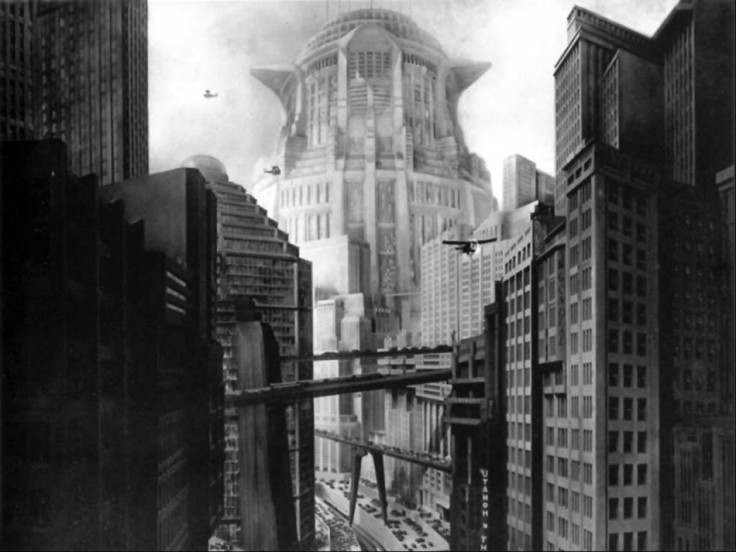Flying Cars Won't Solve Global Gridlock
The future has been over sold and under imagined leading to a global traffic jam of epic proportions.

Ask anyone about what the future will look like, and they will almost always talk mention some form of transport.
Whether it is teleporting, flying trains, jet packs or hover cars, all our visions of the future include new and exciting ways of getting from one place to another. The problem is, our vision for the future of transport hasn't changed in a long time.
Look back at the classic science fiction films from the 1920s, such as Fritz Lang's seminal Metropolis, and you will see something similar to what has been envisioned in the latest Hollywood blockbuster, such as this year's derivative Total Recall remake.
This problem was summed up succinctly this week at the Guardian's future of sustainable transport: solving global gridlock debate by Susan Claris, a transport planner at Arup, when she said:
"The future is over-sold and under-imagined"
Claris doesn't claim to have come up with this snappy quote, crediting a colleague of hers at Arup, but she certainly believes in its central thesis.
She told the debate that while it is "very tempting to think of a single future", where everyone has a jet pack strapped to their back and commutes to work in flying trains, it simply won't work for transport in the future.
Seven billion
Half of the world's almost seven billion people currently live in urban areas. However, by the time 2050 rolls around, there will be over nine billion people on the planet and 70 percent of these will be living in urban areas.
Of that 70 percent only 1.3 billion will in the developed world, with 5 billion in less developed countries. These cities in developing countries will be unaccustomed to dealing with and planning for traffic in volumes which are sure to accompany the surge in population.
According to Claris, every single day 170,000 more people are moving to urban environments across the globe.
We are already seeing the effects. The average American spends a week in traffic jams every year. But this is nothing compared to what is happening in the world's developing countries.
100 mile traffic jam
Last year in China there was an 100 mile traffic jam which took 11 days to clear. The average Beijing commuter has a five hour drive to and from work every single day.
These cities will face congestion on an unprecedented level in the coming years and with a predicted 2-4 billion cars on the road by 2050, a new vision for the future of transport is badly needed.
It is clear now that reducing emissions and making ever greener vehicles is not the answer to everything, the problem of congestion and lack of mobility will remain.
Barb Samardzich, vice president of product development at Ford of Europe, agrees with Claris:
"Today, with increasing migration to urban areas and growing numbers of vehicles on the road, the freedom of mobility is now threatened by an increasing congestion problem, especially in metropolitan areas around the world."
However Samardzich sees Ford's drive towards a more connected car as key to helping solve this problem.
"Current in-car connectivity systems of the here and now will form the basis of our connected cars of the future - those that will talk to each other and the environment around them, helping to potentially reduce accidents and keep traffic moving."
Samardzich spoke about Bill Ford, the executive chair of the Ford Motor Company, who has been a strong advocate of green technology for over 20 years and is now looking at getting rid of gridlock:
"The mobility model we have today, simply won't work tomorrow."
Ownership
One of the key issues which need to be addressed is the ownership of cars themselves.
Cars are a status symbol. They are a symbol of freedom.
Most people could survive without one, but, for most people, not owning a car is anathema. Despite the fact that a car is parked for 96 percent of the time, people don't want to give them up.
Claris believes a shift in focus is needed to address this issue: "We need to plan for people and we need to recognise that people are not rational, and most of the time follow their gut and heart [when making decisions]."
Sylvain Haon, secretary general of the Polis Network agrees that the focus needs to be on people and not machines. "We have to change our mindset. We have until now been focused on movement of traffic."
Haon said we need to find an alternative to private car ownership, and look toward the "integration between modes of transport" and focus on the individual rather than the whole.
Despite this debate taking place, a lot of people talking about this issue, and people genuinely wanting things to change, it seems as if we are inexorably moving towards a global traffic jam of epic proportions.
Leadership is a major problem and there seems to be no joined-up thinking as of yet from the different groups involved, including governments, local authorities and car manufacturers.
Jet packs and flying cars are all well and good for science fiction films, but in the real world it will take strong leadership from the political sphere to change anything, and with 170,000 people moving to urban areas every single day, the clock is ticking.
© Copyright IBTimes 2025. All rights reserved.






















